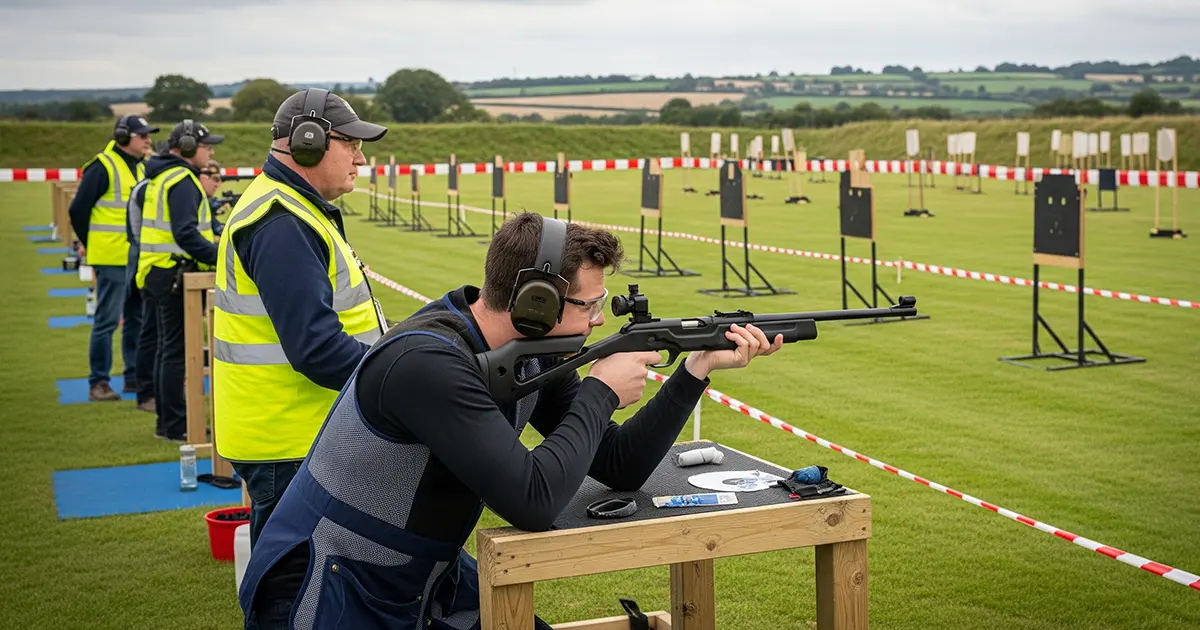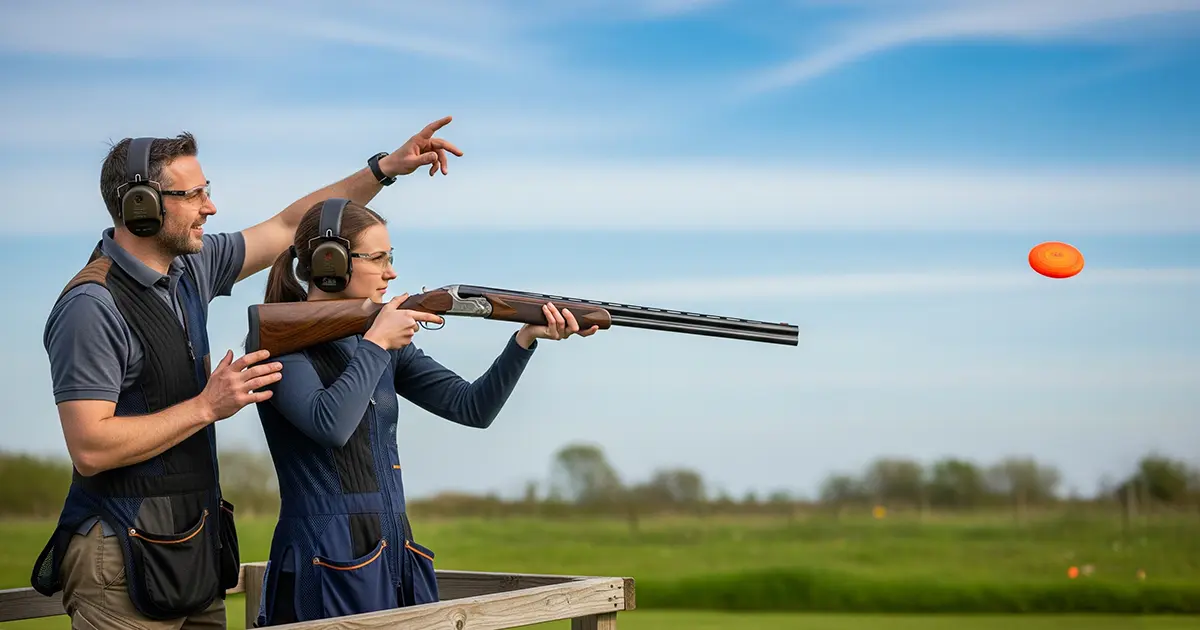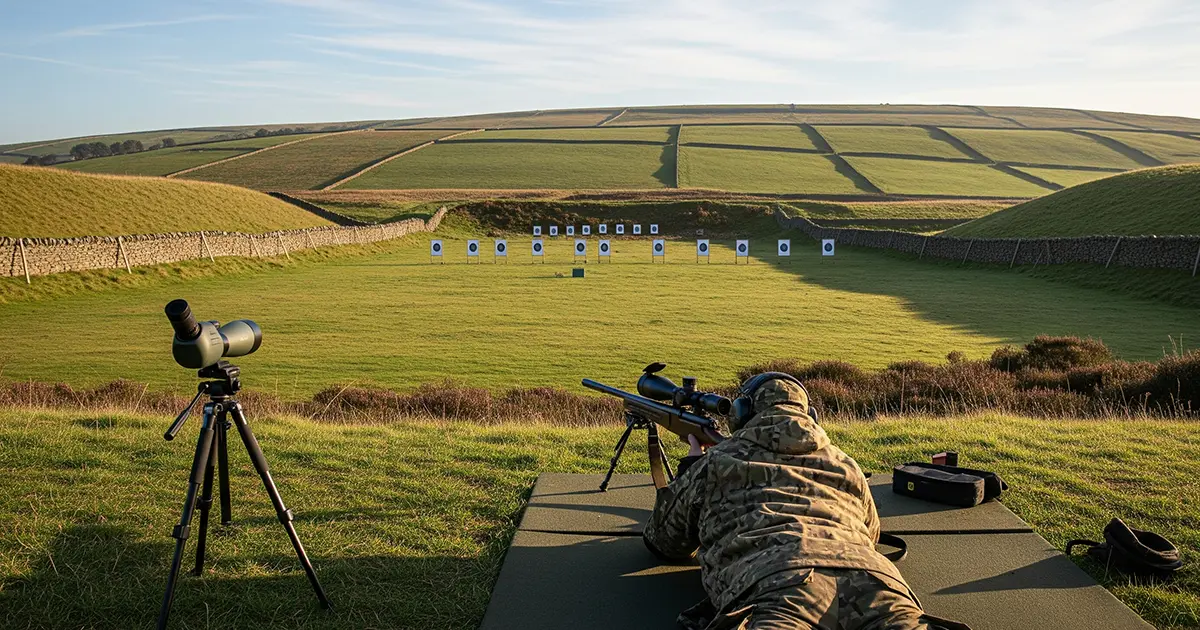Stepping onto the firing line for your first competition is exciting, but it can also feel like stepping into another world. There are range commands you have never heard before, safety protocols that seem stricter than the law, and an overwhelming amount of kit on display. This guide blends insider knowledge with practical steps so you know exactly what to expect, what to bring, and how to make that first day count.
David Bellamy, Managing Director of The Instinctive Shooter, puts it simply: “The most important thing for any new competitor is to arrive prepared and stay safe. Everything else will fall into place once you are on the squad.”
The day begins before you even leave home
Many newcomers think the competition starts when they step onto the range. In reality, the day starts at home with preparation.
- Check your certificates: You will need the correct firearm certificate for the gun and ammunition you plan to use.
- Pack with a checklist: Firearm, chamber flags, unloaded magazines, ammunition, PPE, weather-appropriate clothing, water, and snacks.
- Secure transport: In the UK, firearms must be transported unloaded, in a secure case, with ammunition stored separately.
One common mistake is rushing to pack the morning of the match, leading to forgotten items like ear protection or spare magazines. A printed checklist eliminates these oversights.
Arriving at the match without feeling out of place
Competitions in the UK usually operate as cold ranges. That means no loaded firearms except under direct instruction from a Range Officer.
- Check in early: Give yourself time to find your squad, review the stages, and settle in.
- Follow PPE rules: Eye and ear protection on before handling any firearm.
- Chamber flags in place: Many UK clubs require visible flags whenever a firearm is not in use.
David advises, “The first impression you make is how you carry yourself around the range. Arrive early, ask questions, and watch how experienced shooters move and handle their kit. That will teach you more than any YouTube video.”
Understanding the safety commands
The first few times you hear “Load and make ready” or “If you are finished, unload and show clear,” it might feel like another language.
Practical shooting uses a consistent set of commands worldwide, but in the UK they are adapted to local laws and divisions. The main points:
- Only handle firearms when directed.
- Keep your muzzle within the safe arc (known as the 180 rule).
- Finger stays off the trigger unless you are aiming at a target.
Breaking these rules, even by accident, will mean disqualification. It is strict for a reason. Safety is the foundation of every match.
Choosing the right competition format
Videos from the United States often show USPSA pistol matches, but in the UK you will be entering IPSC under UKPSA, or precision rifle matches under PRS UK.
IPSC (UKPSA) formats you might start with:
- Mini Rifle (.22 LR): Affordable, low recoil, and widely available at UK clubs.
- Long barrel pistol or revolver: UK legal and popular in dynamic stages.
- Pistol calibre carbine: Straight-pull or lever action models are common here.
- Practical shotgun: Section 1 or Section 2 depending on division.
PRS formats:
- PRS Rimfire: Ideal first step, lower recoil and cost, matches available nationwide.
- PRS Centrefire: For those with the correct certificate, typically bolt-action rifles with bipods and quality optics.
David often recommends Mini Rifle or PRS Rimfire for first matches: “Both let you focus on learning the sport without being distracted by heavy recoil or high running costs.”
Avoiding gear overload
Reviews and social media groups are full of new shooters showing off mountains of gear. The reality is you only need the essentials to start:
- A reliable firearm suited to your chosen division.
- Three to five magazines.
- Belt or chest rig for carrying mags.
- Chamber flags, eye and ear protection.
- Ammo that your gun cycles well.
Bring the basics, then add kit as you gain experience. Overbuying is common, and much of it ends up staying in the boot.
Common match-day struggles and how to solve them
Stage planning under pressure
New shooters often rush in, forget targets, or fumble reloads. Walk each stage before you shoot, note reload points, and mentally rehearse your movement. A small notebook can help you lock that plan into memory.
Reliability issues with .22 LR
Semi-auto .22s can be temperamental. Test your ammo, label your magazines, and carry a small cleaning brush and lubricant for quick fixes between stages.
Misjudging round counts
Turn up with more ammunition than you think you need, plus at least one spare magazine. Matches often run higher than published round counts.
Dealing with nerves
Brain fog and rushing are common. Watch two shooters before your turn, focus on clean hits, and remember the squad wants you to succeed.
Expert tip: the match kit that saves the day
The difference between a smooth day and a frustrating one can be a few small items:
- Spare batteries for optics.
- Chamber flags.
- Basic tools for tightening mounts.
- Pasters or tape for targets.
- Sunblock and water.
These take little space but solve big problems.
Why The Instinctive Shooter is the right partner for your first match
We do more than sell firearms and ammunition. We guide you through the process, from choosing your first Mini Rifle or PRS setup, to making sure your transport and storage meet UK regulations.
- Pre-match kit checks: We inspect your firearm, torque mounts, confirm zero, and ensure your magazines feed reliably.
- Safety familiarisation: We walk you through range commands and match etiquette before you set foot on the range.
- Match calendar advice: We point you to clubs and events suited for first-time competitors.
David sums it up: “If you have the right gear, the right safety habits, and the right mindset, your first match will not just be a learning experience, it will be the start of something you want to do again and again.”
If you are planning your first competition, call The Instinctive Shooter. We can help you choose the right division, prepare your kit, and make sure your first match is as enjoyable as it is safe.
First Match Questions, Answered by the Experts at The Instinctive Shooter
What Is the Best Competition Division for Beginners in UK Shooting?
Many first-time competitors start with Mini Rifle or PRS Rimfire. Both are affordable, have low recoil, and are widely available, allowing you to focus on learning match flow and safety without being distracted by heavy recoil or complex gear.
Do I Need to Join a Shooting Club Before My First UK Match?
In most cases, yes. Many competitions require participants to be members of a recognised shooting club or governing body, such as the UKPSA or PRS UK, for insurance and safety reasons. Joining a club also gives you access to range time and coaching before your first event.
How Many Magazines Should I Bring to My First Shooting Match?
A good starting point is three to five magazines, depending on the division and match format. This ensures you can complete a stage without reloading mid-string, and gives you a backup if a magazine malfunctions.
What Is the 180 Rule in Competition Shooting and Why Is It Important?
The 180 rule means you must never allow your muzzle to point beyond 90 degrees to your left or right in relation to the firing line. It prevents unsafe muzzle sweeps and is one of the most important safety principles in competition shooting.
How Can I Manage Nerves at My First Shooting Competition?
Arrive early, get familiar with your squad, and watch a few shooters before your turn. Focus on safety and accuracy, not speed, and remember that most experienced competitors are happy to offer guidance and encouragement.
Is There a Dress Code for Shooting Competitions in the UK?
There is no formal dress code, but clothing should be practical, comfortable, and weather-appropriate. Good footwear is essential, especially for outdoor matches where conditions can change quickly.
Do I Need Special Ammunition for IPSC or PRS Matches?
For Mini Rifle and PRS Rimfire, standard high-quality ammunition is usually fine, as there are no power factor requirements. Choose a reliable brand that groups well in your firearm and test it before match day.




